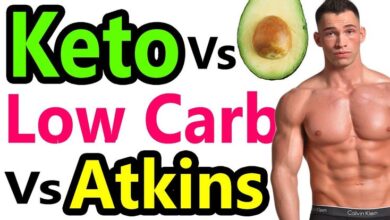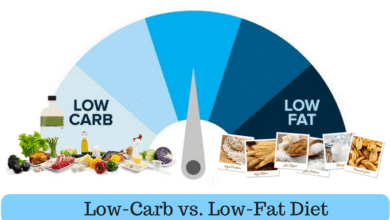A Complete Guide to Ketone Esters vs Exogenous Ketones for Beginners: Boost Energy, Fat Loss & Brain Health

A Guide to Ketone Esters vs Exogenous Ketones for Beginners
The ketogenic lifestyle has exploded in popularity across the United States, Canada, and Europe. People everywhere are searching for ways to burn fat faster, boost mental clarity, and improve overall performance. Among the supplements fueling this trend are ketone esters and exogenous ketones.
But here’s the big question: what’s the difference between ketone esters and exogenous ketones—and which one is right for you as a beginner?
This guide breaks it all down in plain language. We’ll explore how they work, their benefits, possible side effects, and tips on how to start. Think of this as your ultimate roadmap into the world of ketone supplements.
Read Also 7 Benefits of Exogenous Ketones Supplements for Weight Loss and Energy
Understanding Ketones: The Basics
Before diving into supplements, let’s cover the basics.
Ketones are molecules your body makes when you switch from burning carbs to burning fat for fuel. This state is called ketosis. Normally, you reach ketosis by following a strict low-carb, high-fat diet (keto diet). But here’s the twist: you can also “hack” your way into ketosis with supplements.
That’s where exogenous ketones and ketone esters come in.
- Exogenous means “from outside.” These are ketones you drink or take as a supplement.
- Endogenous means “from within.” These are the ketones your body naturally produces.
Both ketone esters and ketone salts fall under the category of exogenous ketones, but they are not the same.
Ketone Esters Explained
Ketone esters are the premium grade of ketone supplements. They are chemical compounds that deliver pure beta-hydroxybutyrate (BHB) directly into your bloodstream.
- They’re powerful. Within minutes, they can raise your blood ketone levels dramatically.
- They’re often used by athletes, biohackers, and researchers.
- They’re also the most expensive option in the market.
Think of ketone esters as the Ferrari of the keto world: fast, powerful, but not always practical for everyone.
Exogenous Ketones (Ketone Salts) Explained
Exogenous ketones usually come as ketone salts. Here, BHB is bonded with minerals like sodium, potassium, calcium, or magnesium.
- They’re cheaper and more widely available than esters.
- They taste better (esters can be bitter).
- They raise ketone levels moderately, not as dramatically as esters.
If ketone esters are the Ferrari, then ketone salts are the Toyota Camry—reliable, affordable, and beginner-friendly.
Ketone Esters vs Exogenous Ketones: Key Differences
Here’s a side-by-side comparison:
| Feature | Ketone Esters | Exogenous Ketone Salts |
|---|---|---|
| Potency | Very high (fast ketosis) | Moderate |
| Taste | Bitter, unpleasant | More palatable |
| Price | Expensive | Affordable |
| Best For | Athletes, researchers, biohackers | Beginners, everyday keto dieters |
| Ketone Boost | Sharp increase | Mild increase |
| Side Effects | Digestive discomfort, taste issues | Bloating, mineral overload |
Benefits of Ketone Esters
- Rapid Ketosis: Perfect for athletes who need quick energy.
- Enhanced Brain Function: Research shows ketone esters may support memory and focus.
- Athletic Performance: Helps endurance athletes push harder during long events.
- Therapeutic Use: Being studied for Alzheimer’s, epilepsy, and Parkinson’s disease.
Benefits of Exogenous Ketones (Salts)
- Beginner Friendly: Easy to add into your routine.
- Energy Boost: Great for beating the “keto flu” when starting the diet.
- Electrolyte Support: Added minerals help with hydration.
- Weight Management: May reduce cravings and appetite.
Which One Is Better for Beginners?
If you’re new to the keto world, exogenous ketone salts are your best bet. They’re affordable, taste better, and give you a smoother introduction.
Ketone esters, on the other hand, are more of a specialist’s tool. They’re great if you’re serious about biohacking or athletic performance, but they’re not necessary for casual keto dieters.
When Should You Take Ketone Supplements?
Timing matters.
- Morning Boost: To replace coffee or fuel a workout.
- Pre-Workout: For endurance and strength.
- During Keto Flu: To reduce fatigue, brain fog, and carb cravings.
- Before Fasting: Helps extend intermittent fasting periods without hunger.
Possible Side Effects
Both ketone esters and salts can have side effects, especially if overused.
- Ketone Esters: Bad taste, nausea, stomach discomfort.
- Ketone Salts: Bloating, diarrhea, and mineral imbalance (too much sodium).
The key is to start small and increase slowly.
Cost Comparison
One major factor is price.
- Ketone Esters: $30–$40 per serving.
- Exogenous Ketone Salts: $3–$5 per serving.
If you’re experimenting, start with salts. If you’re serious and can afford it, esters are worth testing.
Scientific Backing: Do They Really Work?
Studies show both esters and salts raise blood ketone levels, but esters are far more effective. Researchers are especially interested in their potential for brain health and athletic performance.
Still, ketone supplements are not a magic bullet for fat loss. They work best when combined with a low-carb diet, exercise, and consistent lifestyle habits.
Real-Life Use Cases
- Weight Loss: Beginners use salts to fight cravings.
- Athletes: Professionals use esters for endurance events.
- Students/Executives: Use esters for sharp mental focus before exams or big meetings.
- Fasting Enthusiasts: Use salts to extend fasting windows without energy crashes.
How to Choose the Right Supplement
When buying:
- Check the label for purity (avoid too many fillers).
- Look for trusted brands with positive reviews.
- Decide based on budget and goals.
Tips for Beginners
- Don’t rely solely on supplements—stick to a clean, low-carb diet.
- Stay hydrated and replenish electrolytes.
- Test your ketone levels with strips or meters.
- Start with small doses to avoid stomach upset.
Conclusion
So, what’s the final verdict in the ketone esters vs exogenous ketones debate?
- If you’re just starting out, exogenous ketone salts are your best option.
- If you’re an athlete, biohacker, or someone who wants peak mental clarity, ketone esters could be worth the investment.
Either way, think of ketone supplements as a tool, not a replacement for healthy eating and lifestyle habits.
Read Also What Are the Best Exogenous Ketone Supplements Available?
FAQs
1. Can I take ketone supplements without following the keto diet?
Yes, but results are better when combined with a low-carb diet.
2. Do ketone esters help with weight loss?
They may curb appetite, but diet and exercise remain the main drivers of fat loss.
3. Are ketone supplements safe for everyone?
Generally safe, but people with kidney or heart conditions should consult a doctor.
4. Can I drink ketone esters daily?
You can, but due to cost and potential stomach issues, most people use them occasionally.
5. What’s the best time to take exogenous ketones?
Morning or pre-workout works best for energy and focus.




